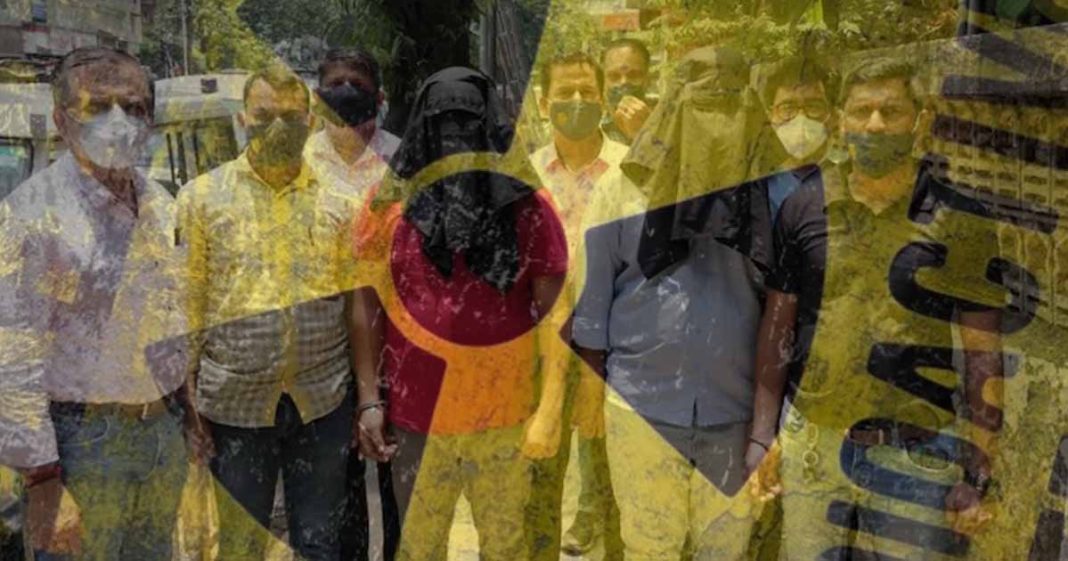
by Mussawer Safi 22 March 2023
The Indian nuclear program has been a concern for many years, and recent incidents have raised a question about its competence. A black market for nuclear materials exists in India, as shown by the recent heist of uranium and other hazardous materials. Because of these events, Concerns have been raised about the program’s ability to safeguard its massive stockpile of fissile material.
The losses of radioactive and uranium elements in India are alarming because they indicate that the country’s nuclear resources are being traded on the black market. In June and May 2021, the Indian authorities confiscated 6.4kg and 7kg of uranium in Jharkhand and Maharashtra. This was followed by the confiscation of 250kg of a highly radioactive and toxic substance worth $573 million in Kolkata in August 2021, which resulted in the arrest of two persons from Indian strategic organizations.
These incidents are not isolated; in December 2006, a container packed with radioactive material was stolen from a fortified research facility in Rajappa. The theft of radioactive materials from Indian facilities suggests that security measures are inadequate and that there may be gaps in the control and management of nuclear materials.
Theft of nuclear materials threatens global security, and the possible effects of these crimes cannot be stressed enough. The radioactive materials in India are hazardous and can hurt people and the environment if not handled carefully. Moreover, these materials can be used to create nuclear weapons, severely threatening global security. Misusing nuclear materials can have catastrophic consequences and result in loss of life, environmental damage, and economic devastation. Therefore, it is essential to ensure that nuclear materials are secure and are not misused.
Radioactive materials have been stolen in India, raising concerns about the safety and security of India’s nuclear program. Nuclear materials are hazardous and need strict security measures to keep them from being used or accessed by people who should not be able to. Radioactive materials are being stolen from Indian facilities, showing flaws in how nuclear materials are managed and controlled.
Black market trading of highly enriched uranium shows that the security measures to keep nuclear materials safe must be improved and fixed immediately. Theft of nuclear materials is severe, as they can be used to make nuclear weapons or for other malicious purposes. It is crucial to ensure that the security measures are strengthened and that the control and management of nuclear materials are tightened to prevent such incidents from occurring in the future.
Moreover, incidents such as the accidental firing of a Brahmos missile from Sirsa, Haryana, on march 9,2022 that crashed into Mian Chanu, District Khanewal, Punjab, Pakistan, raise questions about the safety and control of Indian command and control systems. Such incidents pose the risk of a nuclear war due to miscalculation between India and Pakistan, which could lead to a catastrophic outcome.
Given the high stakes involved, it is crucial to take the necessary measures to ensure that nuclear materials are secure and not misused. The international community must be vigilant and act appropriately to protect nuclear materials from theft and misuse. The Indian government must address the gaps in the control and management of nuclear materials and take measures to strengthen the security of its nuclear program.
India’s use of civil nuclear programs and technologies for military purposes has raised concerns in the international community about the safety and security of nuclear materials and the potential risks of nuclear exchange due to miscalculation. This defiance of international obligations underscores the need for caution in nuclear-related dealings with India to prevent the region and the world from becoming more dangerous.
On the other hand, Pakistan has shown that it wants to improve nuclear security by working with the rest of the world to promote nuclear safety and security. As a nuclear-capable state, Pakistan has implemented multiple layers and defense-in-depth concepts to ensure nuclear safety and security. Pakistan’s export control laws are on par with international standards, including those set by the Nuclear Suppliers Group (NSG) and other export control regimes.
